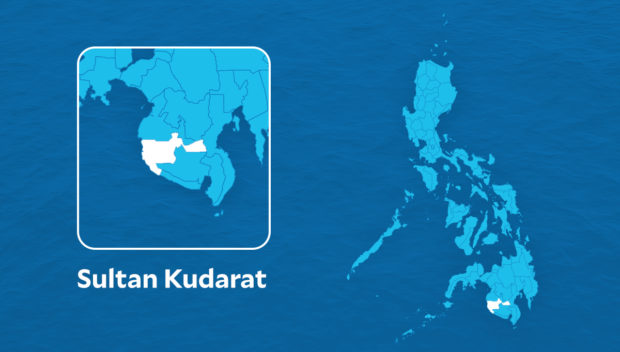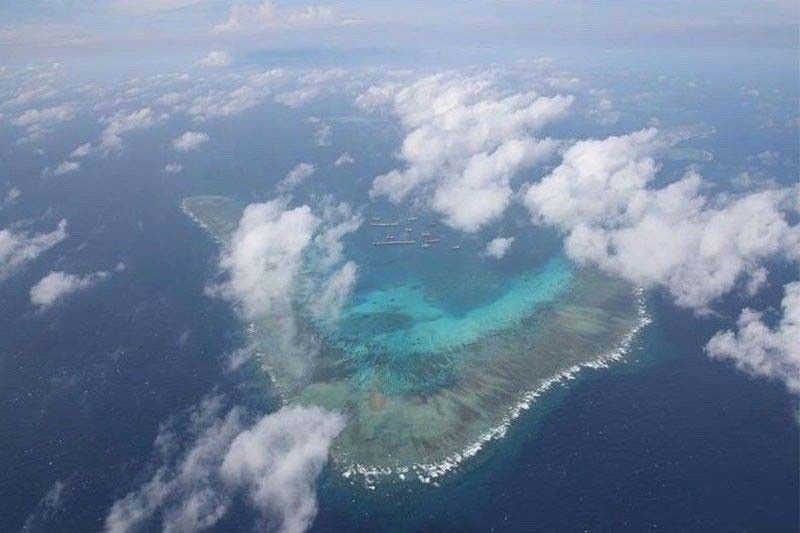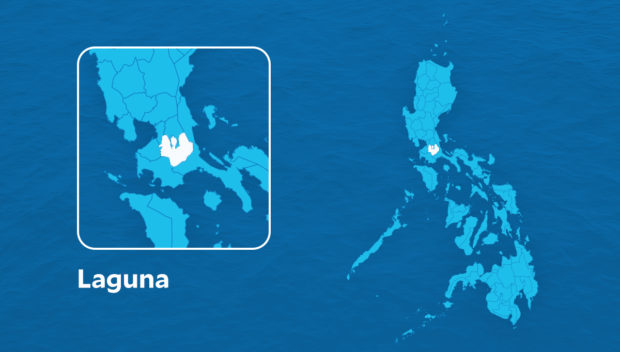Posted to the US Naval Institute (USNI) Website (Aug 2023): Maritime COIN Is a Team Sport//China’s insurgency demands a regional response (By Rear Admiral Rommel Jude G. Ong, Armed Forces of the Philippines-Retired)
August 2023 Proceedings Vol. 149/8/1,446
Gray zone tactics comprise the most pressing and intractable aspect of China’s maritime strategy in the South China Sea. They continue to defy any effective political, legal, or naval response by the Philippines or by any other affected coastal state in the region.
In analyzing the contemporary Chinese challenge, it is useful to return to one of the foundational 20th-century thinkers on insurgency. David Galula, a French military officer and scholar, described an insurgency as “a protracted struggle conducted methodically, step by step, in order to attain specific intermediate objectives leading to the overthrow of the existing order.”1 He further posited that “promoting disorder is a legitimate objective of the insurgent. It helps to disrupt the economy, hence to produce discontent; it serves to undermine the strength and authority of the counterinsurgent. . . . Disorder is cheap to create, and very costly to prevent.”2
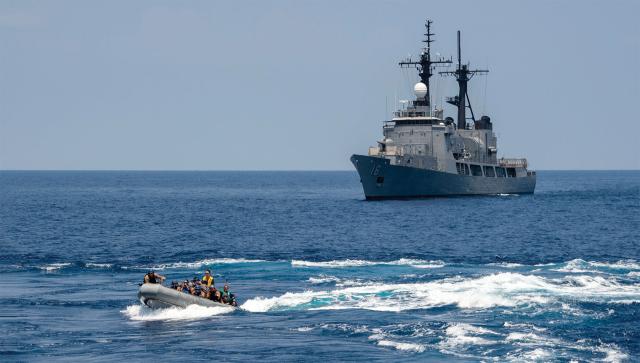
U.S. Navy sailors return to the guided-missile destroyer USS Preble (DDG-88) in a rigid-hulled inflatable boat near the Philippine Navy offshore patrol vessel Ramon Alcaraz (the former U.S. Coast Guard cutter Dallas) during Exercise Balikatan. U.S. Navy (Bryan Niegel)Galula’s ideas allow discernment of the broad strokes of Xi Jinping’s “China Dream” as a “global insurgency.” Within this frame of reference, China can be understood as an “insurgent,” while the responding nations are the “counterinsurgent,” and Southeast Asia is the populace to be influenced. He warned that “once the insurgent has succeeded in acquiring stable geographical bases . . . he becomes ipso facto a strong promoter of order within his own area, in order to show the difference between the effectiveness of his rule and the inadequacy of his opponent’s.”3
Galula was prescient. Using its navy, coast guard, maritime militia, and fishing fleet, China has physically asserted its illegal claims to “indisputable sovereignty” over the South China Sea and coerced adjacent coastal states, including the Philippines, by encroaching on lawful civilian economic activity in their internationally recognized exclusive economic zones (EEZs). In a parallel, decades-long effort, China drove wedges among Association of Southeast Asian Nations (ASEAN) member-states, employed influence operations to co-opt their political and economic elites, and tried to use the ASEAN-China Code of Conduct negotiations to oust the United States from the region.
China’s consistent and continuing campaigns across multiple lines of effort clearly indicate that Beijing desires nothing less than the acquiescence of Southeast Asia to becoming modern day “tributary-states” to Xi’s empire. This is consistent with Galula’s assessment of the basic objective of an insurgency:
If the insurgent manages to disassociate the population from the counterinsurgent, to control it physically, to get its active support, he will win the war because, in the final analysis, the exercise of political power depends on the tacit or explicit agreement of the population, or at worst, on its submissiveness.4
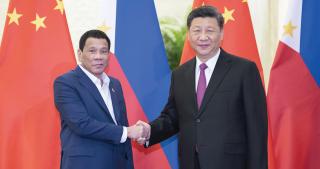
Chinese President Xi Jinping (right) meets with his Philippine counterpart Rodrigo Duterte in Beijing in April 2019. President Duterte placed the Philippines-U.S. alliance on the backburner in exchange for China’s promised—but never delivered—economic investment. Xinhua/Alamy Live News (Li Tao)
The longstanding tendency of Southeast Asian states to hedge relations between the United States and China underscores the sharp efficacy of Beijing’s hard power. In the Philippines, former President Rodrigo Duterte’s appeasement policy allowed China to challenge the exercise of sovereignty within the Philippines’ territorial waters and sovereign rights in its EEZ.
None of this will convert Southeast Asian nations into believers in Xi’s “dream.” Galula emphasized the need for insurgents to have “an attractive cause” if they want to do more “than simply making trouble.” A cause gives the insurgent “a formidable, if intangible, asset that he can progressively transform into a concrete strength.”5 Here lies the weakness of China’s insurgency. Ultimately, Xi’s end-state has always been about personal and regime survival; the benefits of the “dream” are exclusive to China. They do not offer Southeast Asia “an attractive cause,” and living in a surveillance state holds no appeal.
Former Associate Chief Justice of the Philippines’ Supreme Court Antonio Carpio predicts a grim future for the rules-based international order if China’s activities in the South China Sea remain unaddressed:
At stake is the survival of the legal order, enshrined in the 1945 U.N. Charter, that no state shall use armed force to settle a dispute with another state but must use only peaceful means to settle such disputes. . . . We must prevent China from overturning this fundamental principle, otherwise, we will go back to the “might is right” order that prevailed before.6
The first step in reversing the initial successes of Xi’s insurgency is to look beyond its tactical effects on the ground. Certainly, it has disrupted the decision cycle of many regional navies and coast guards. But this is only one aspect. Deconstructing it further reveals how China strategically employs its “comprehensive national power” to influence the region’s economies while using its diverse maritime capabilities to encroach on its neighbors’ EEZs.7 Moving forward, the United States and nations around the South China Sea can take inspiration from Galula’s “four laws for counterinsurgency” to avert a potential strategic victory for China.
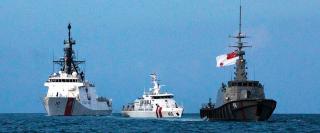
The USCGC Stratton (WMSL-752) with Indonesian Maritime Security Agency patrol boat Belut Laut-406 and Republic of Singapore Navy MSRV Bastion in May 2023. U.S. Coast Guard (Brett Cote)
First: “The support of the population is as necessary for the counterinsurgent, as for the insurgent.”8
An essential battleground can be found in the “hearts and minds” of ASEAN’s political and economic elites. The elites can convince Southeast Asian governments either to stay the course of abiding with an “insurgent” China, or they can swing governments’ support to the cause of like-minded countries endeavoring to maintain a rules-based international order. In eschewing Marx and Lenin, the post-1979 Chinese Communist Party has adroitly exploited Adam Smith’s “invisible hand” to position China as the world’s factory and most lucrative domestic market. This economic appeal allows Beijing to employ its economic capability and relationships across Southeast Asia to gain acquiescence from much of ASEAN. Former President Duterte, for example, placed the Philippines-U.S. alliance on the backburner in exchange for Xi’s promised—but never delivered—economic investment.
Winning back ASEAN’s elite will be an uphill challenge for the United States. The Indo-Pacific Economic Framework is attractive only if the United States is willing to open its economy for trade, but with the current mood in U.S. domestic politics, this is unlikely to happen soon. Instead, Japan and members of the European Union might need to take the lead. Through soft power, Japan has already established a robust engagement with the region’s major economies. But this needs to be synchronized with the high-level dialogues taking place among defense and foreign ministries. This also could present an opportunity to bring more private-sector actors into these conversations to discuss how ASEAN can become the world’s alternative supply chain and break China’s economic stranglehold.
Second: “Support is gained through an active minority.”9
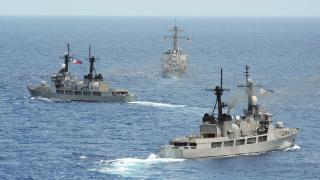
The Philippine frigates Gregorio del Pilar (the former U.S. Coast Guard Cutter Hamilton), left, and Ramon Alcaraz (the former cutter Dallas), right, underway with the USS John S. McCain (DDG-56) in the South China Sea. U.S Navy (Jay C. Pugh)
Under present conditions, ASEAN is not inclined to make any large-scale moves against China. In addition to its use of trade and investment promises for geopolitical gain, China has waged an effective “divide and conquer” diplomatic strategy. Aiding this strategy is the fact that ASEAN states have diverse cultures, distinct histories, different governance styles, and widely varying views of where their countries’ respective national interests reside. For these members to rally to a common cause, many must first overcome their fear of entrapment in a great power conflict, the primary driver of hedging and bandwagoning strategies across the region in the first place.
As of now, the most workable templates are minilateral arrangements, such as the Indonesia-Malaysia-Philippines (IndoMalPhi) trilateral cooperation agreement, an effort to combat armed robbery at sea and transnational terrorism along the Sulu-Sulawesi Seascape. Can this specific trio operate in the South China Sea as well? Or can similar arrangements with different sets of members be replicated? While the odds are against such a coalition forming among ASEAN members in the near term, a greater cause for optimism can be found in the emerging trilateral arrangement among the Philippines, United States, and Japan. This development could be the closest to the “active minority” that Galula envisioned. This grouping remains nascent, but if it gains traction, it might encourage the rest of Southeast Asia to stand up to Beijing.
Third: “Support from the population is conditional.”10
As Southeast Asia continues to bow before insurgent China, the United States needs to restore its credibility as the region’s security guarantor. This diminished in the aftermath of Scarborough Shoal’s loss in 2012, and freedom of navigation operations alone are an inadequate tactical response to China’s broad maritime strategy.11 Persistent inaction only emboldens China to continue violating Southeast Asian countries’ sovereign rights at sea. The United States and its friends need to find a way to break China’s continuing quasi blockade around the Scarborough, Second Thomas, and James Shoals, as well as the Senkaku Islands, while still remaining below the threshold of armed conflict.12 Matching the presence of China’s coast guard and militia would be a good start, but the goal should be the removal of Chinese forces from the encroached-upon waters. Without visible successes along these lines, the region will continue to vacillate in the face of China’s brand of international disorder.
Fourth: “Intensity of effort and vastness of means
are essential.”13
In terms of hard power, the naval correlation of forces in East Asia is skewed in China’s favor, even more so when China’s coast guard and militia are factored in. In addition, China has the advantage of interior lines of communication among the mainland, Hainan island, and its island bases in the Paracels and Spratlys, thus enhancing its operational logistics and sea control capabilities.14 All this forms the backdrop for China’s deployment of nonmilitary instruments of power to co-opt the region’s key elites and create a critical mass of support among the general public in various Southeast Asian nations.
Galula rightly argued that a counterinsurgency campaign should prioritize efforts to concentrate available resources. To win back Southeast Asia, a maritime counterinsurgency campaign should consider the following lines of effort:
• Adopting a “whole of alliance” approach to create convergence in diplomatic, informational, military, and economic strategies across like-minded democracies
• Shaping public opinion through continual engagement and dialogues with ASEAN’s elites and the general public
• Developing the capability to counter foreign interference among ASEAN members
• Deterring malign behavior through regionwide naval and military exercises to build interoperability and deliver targeted messaging
• Challenging China’s quasi blockade of Japanese, Malaysian, and Philippine shoals and islands
• Challenging maritime militia presence in EEZs and on unoccupied shoals in the Spratlys
• Sustaining focused naval presence in the South China Sea through coordinated air and maritime patrols.
A June 2023 meeting among the national security advisers of the Philippines, the United States, and Japan could be the first step in such a campaign. There, the three countries agreed to undertake multilateral joint naval exercises within the region; to advance cooperation on bilateral agreements by the Philippines with the United States and Japan such as the Enhanced Defense Cooperation Agreement and reciprocal visits of officials; to promote maritime domain awareness using Japan’s Official Security Assistance mechanism and the Indo-Pacific Partnership for Maritime Domain Awareness; to deepen cooperation in humanitarian assistance and disaster relief; and to promote economic security and resilience and address economic coercion.15
This is not a call to prepare for war with China—going kinetic would not be the right option. Instead, the defenders of the rules-based international order must work to gain a strategic victory without fighting. To apply Galula’s sense of what a “strategic victory” entails: A South China Sea maritime counterinsurgency campaign should involve a maritime coalition, requires a multidomain approach, and demands interagency collaboration at regional and national levels. It will likely be a gradual, grinding, and cumulative process, focusing efforts against the structural and critical vulnerabilities of China’s insurgency. The desired end-state must be a condition in which the nations of Southeast Asia can unshackle themselves from China, breaking free of the tributary-state mindset, and instead act to secure their own interests.
Footnotes:
1. David Galula (10 January 1919–11 May 1967) was a French military officer and scholar who gained practical experience in counterinsurgency in the Algerian War. See David Galula, Counterinsurgency Warfare: Theory and Practice (Westport, CT: Praeger Security International, 1964), 2.
2. Galula, Counterinsurgency Warfare, 7.
3. Galula.
4. Galula, 4.
5. Galula, 12–14.
6. Excerpt from statement to the author by former Associate Chief Justice Antonio Carpio of the Philippine Supreme Court.
7. Susannah Patton, Jack Sato, and Herve Lemahieu, “Asia Power Index: 2023 Key Findings Report,” Lowy Institute, 2023.
8. Galula, Counterinsurgency Warfare, 52.
9. Galula, 53.
10. Galula, 54.
11. See James Holmes, “You Have to Be There,” U.S. Naval Institute Proceedings 148, no. 7 (July 2022); and CAPT Joshua Taylor, USN, “A Campaign Plan for the South China Sea,” U.S. Naval Institute Proceedings 148, no. 8 (August 2022).
12. See Col Wendell Leimbach and LtCol Eric Duckworth, USMC (Ret.), “Prevailing Without Gunsmoke in the South China Sea,” U.S. Naval Institute Proceedings 148, no. 11 (November 2022); and CDR Phillip E. Pournelle, USN (Ret.), “It Will Take More Than an MLR to Fight a Maritime Insurgency,” U.S. Naval Institute Proceedings 148, no. 12 (December 2022).
13. Galula, Counterinsurgency Warfare, 55.
14. Brad Lendon and Haley Britzky, “U.S. Can’t Keep up with China’s Warship Building, Navy Secretary Says,” CNN, 22 February 2023.
15. RADM Rommel Jude G. Ong, PAF (Ret.), “Trilateral Cooperation among PH, US, Japan: Acceptability, Implications, Impact on Regional Security,” Rappler, 29 June 2023.
[Rear Admiral Rommel Jude G. Ong, Armed Forces of the Philippines (Retired): Rear Admiral Ong retired in 2019 as Vice Commander of the Philippines Navy. He previously commanded Naval Forces West, Naval Task Forces 11 and 80, Naval Intelligence Security Force, and three commissioned naval vessels. He is a graduate of the Philippines Military Academy, the National Defense College of the Philippines, and the U.S. Naval War College.]
https://www.usni.org/magazines/proceedings/2023/august/maritime-coin-team-sport?fbclid=IwAR1Xi6YYVf5_UJxaPfs_4BDwNTQWYuG2b_KES9HZypdoTaVxrEMHjQbq9ww







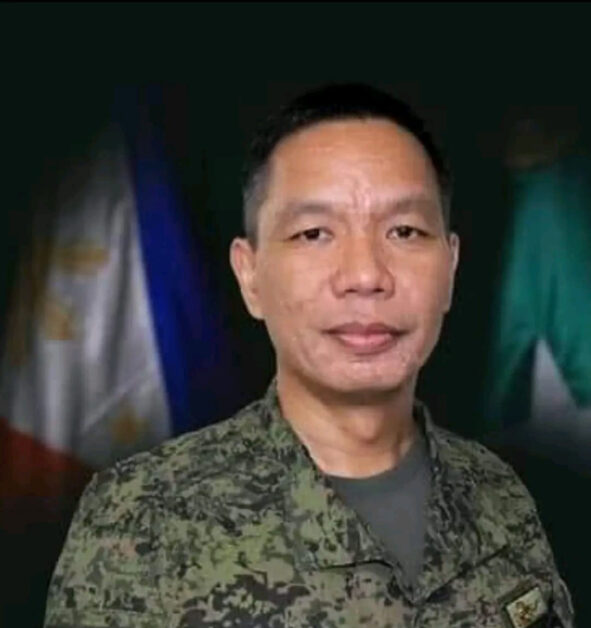

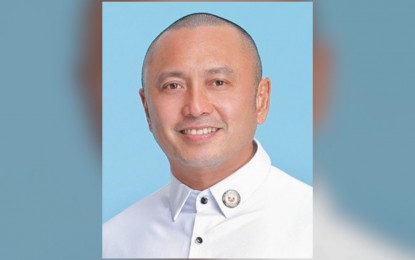
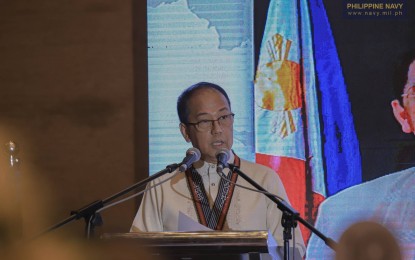
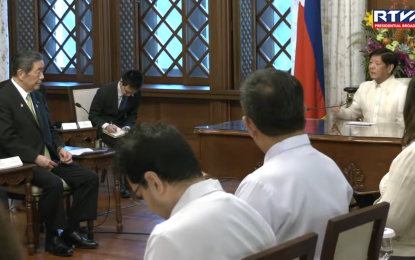
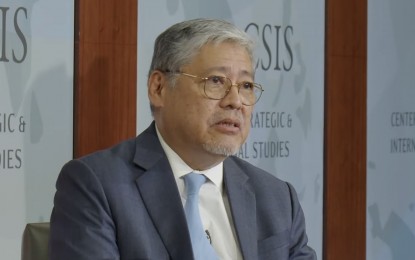
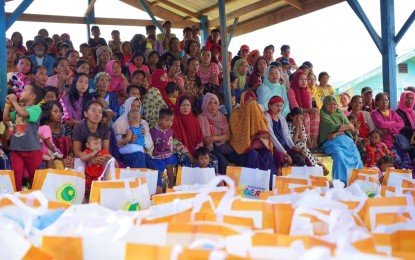

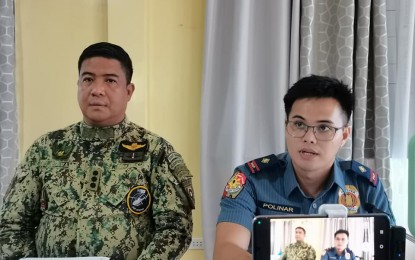
 government to offload and deliver emergency supplies for our #FriendsPartnersAllies affected by Typhoon #EgayPH.
government to offload and deliver emergency supplies for our #FriendsPartnersAllies affected by Typhoon #EgayPH.














